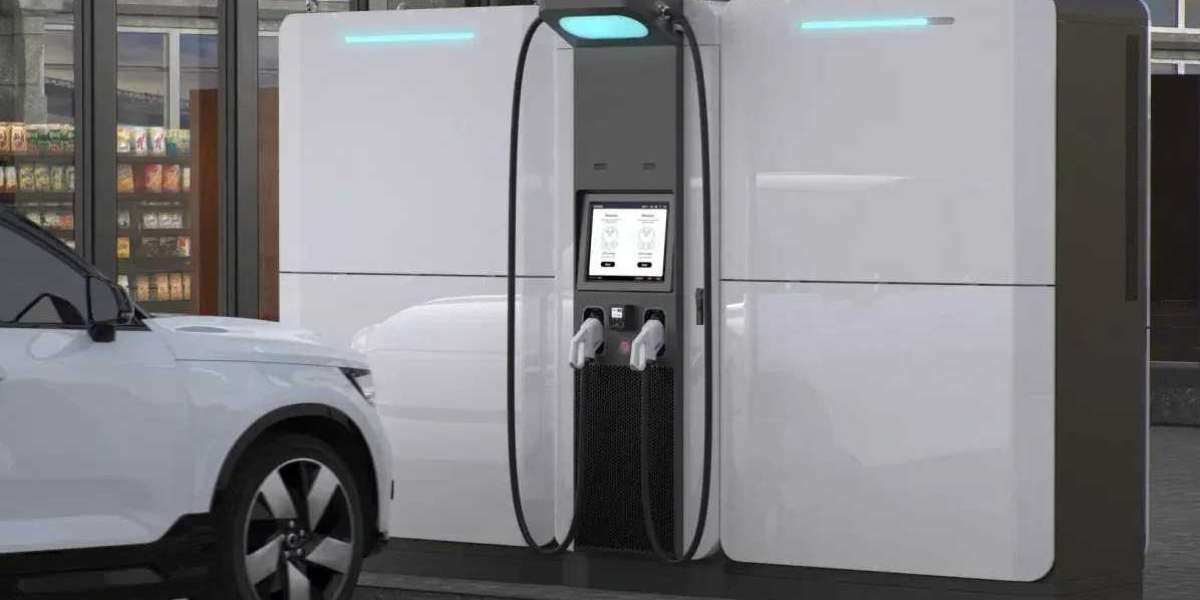Introduction: Why EV Charging Matters Now More Than Ever
As a professional EV charger manufacturer in China, Topper Company provides reliable electric vehicle charging station equipment and comprehensive charging solutions.
The real estate sector stands on the cusp of a major transformation. A recent CBRE white paper forecasts significant growth across both commercial and residential markets in 2025. For developers, investors, and property managers, this surge presents a vital opportunity—but also an important question: how do you differentiate your properties in an increasingly competitive landscape?
One of the most impactful answers lies in electric vehicle (EV) charging infrastructure. As the shift toward sustainable transportation accelerates, EV charging is moving from a premium amenity to a critical utility. Forward-thinking real estate professionals are seizing this moment—installing chargers to attract tenants, future-proof assets, and unlock new revenue streams.
How the Real Estate Sector Can Leverage the EV Boom
The global electrification movement is gaining momentum. Backed by government incentives and automaker commitments, EVs are no longer a niche—they’re the future. Experts estimate the U.S. must invest around $87 billion in charging infrastructure by 2035 to support full EV adoption.
While the Bipartisan Infrastructure Law has earmarked $5 billion for EV charging, this represents just a fraction of what’s needed. The private sector—especially real estate—must step up to meet the demand.
From office complexes and retail centers to multifamily housing and industrial parks, EV charging is quickly becoming a differentiator. It not only satisfies evolving tenant expectations but also enhances long-term property value and generates income through usage fees or network partnerships.
Why EV Charging Is a Strategic Advantage for Property Owners
Integrating EV charging isn’t just following a trend—it’s a strategic move that offers real, measurable advantages:
✅ Increased Property Value
Properties with EV infrastructure are perceived as modern, green, and future-ready. Studies show they can command higher rents and enjoy lower vacancy rates—especially in regions with growing EV adoption.
✅ Attracting and Retaining Tenants
Today’s tenants and businesses prioritize sustainability. Offering EV charging aligns with ESG goals and appeals to environmentally conscious renters, corporate clients, and younger demographics.
✅ Regulatory Readiness
Cities and states are increasingly mandating EV infrastructure in new developments. Proactive installation avoids costly retrofits and ensures compliance.
✅ Access to Incentives
Federal, state, and local programs offer tax credits, rebates, and utility grants that reduce the cost of installation and boost ROI.
✅ New Revenue Streams
Charging stations can serve as standalone income generators through pay-per-use models, profit-sharing with charging networks, or tenant subscription plans.
Commercial Real Estate: The Next Big Charging Hub
Commercial properties are uniquely positioned to become EV charging destinations. Retail centers, business parks, and hospitality venues offer ideal conditions for Level 2 and DC fast charging, benefiting from high traffic and long dwell times.
Retail: Chargers encourage shoppers to stay longer and spend more.
Office Buildings: Workplace charging helps companies meet ESG targets and attract talent.
Hospitality: Hotels with EV charging attract EV-driving travelers and enhance guest satisfaction.
The most transformative opportunity, however, lies in fleet charging.
Fleet Charging: A Golden Opportunity for Industrial Real Estate
With e-commerce growth and the electrification of delivery fleets, demand for commercial EV charging—especially for medium- and heavy-duty vehicles—is surging. Yet few properties are ready to meet this need.
Industrial property owners near highways, ports, and distribution hubs can lead this space by offering tailored charging solutions for logistics firms. Fleet charging hubs appeal not just to giants like Amazon or FedEx, but also to small and mid-sized fleet operators—service contractors, local governments, and last-mile delivery providers.
This shift offers a rare chance to transform low-margin industrial properties into high-demand, high-value infrastructure assets.
Residential Real Estate: EV Charging as a Core Amenity
Multifamily developers can no longer view EV charging as optional. Tenants expect it—and properties that don’t offer it risk falling behind.
Benefits of EV charging in residential settings include:
Market Differentiation: Listings with EV charging attract younger, tech-savvy renters.
Tenant Retention: Offering this amenity increases satisfaction and reduces turnover.
Custom Billing Options: Smart chargers allow for usage-based billing or flat-rate plans.
The key is proactive planning. Incorporating charging into new builds or renovations is far more cost-effective than retrofitting later. Scalable, modular solutions now make it easier than ever to manage, monitor, and maintain EV infrastructure.
What to Consider Before Installing EV Charging
If you're exploring EV charging for your property, here are five essential considerations:
Electrical Capacity
Evaluate your building’s current load and whether upgrades are necessary. Coordinate with your utility early.Charger Type Quantity
Choose between Level 1, Level 2, and DC fast chargers based on your audience, budget, and use cases.Smart Charging Features
Opt for chargers with features like load balancing, remote monitoring, and network connectivity to optimize performance and minimize costs.Permits Compliance
Understand local codes, fire safety rules, and zoning laws. Work with experienced contractors who know your market.User Access Payment Models
Decide whether to keep chargers private or open them to the public. Set up flexible payment options—free, membership-based, or pay-as-you-go.
The Time to Act Is Now
The electric vehicle movement is reshaping industries—and real estate is no exception. EV charging infrastructure is fast becoming a baseline expectation, not a bonus feature.
While the initial investment may seem substantial, the long-term benefits—from increased tenant appeal to new revenue—are undeniable. The most successful developers in the coming years will be those who plan for the EV future today.
Conclusion: Charging Ahead
Real estate has a unique opportunity to lead America’s EV transition. Whether you manage a commercial retail space, develop multifamily housing, or own industrial properties near distribution hubs, EV charging is your gateway to relevance, resilience, and revenue.
As infrastructure gaps widen and competition grows, the market will reward early adopters. EV charging stations are not just a passing trend—they’re foundational to the smart, sustainable communities of tomorrow.Know more about Google SEO Directory

